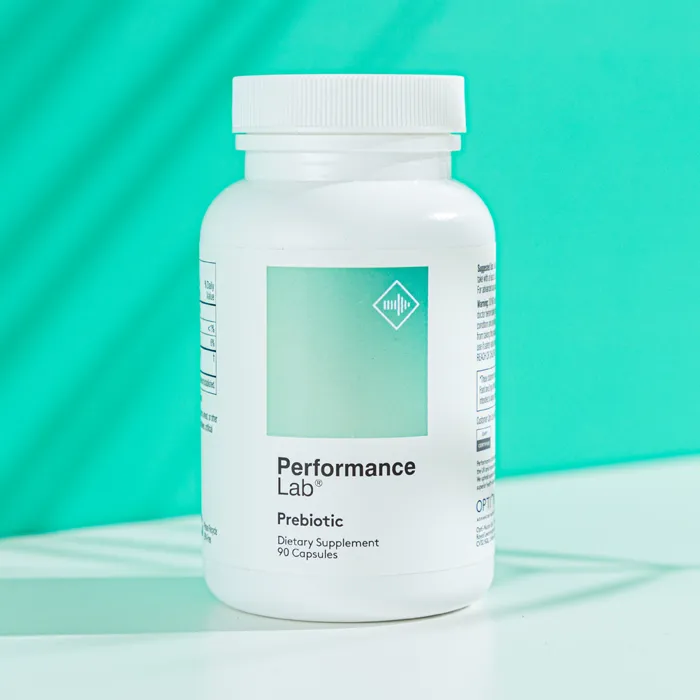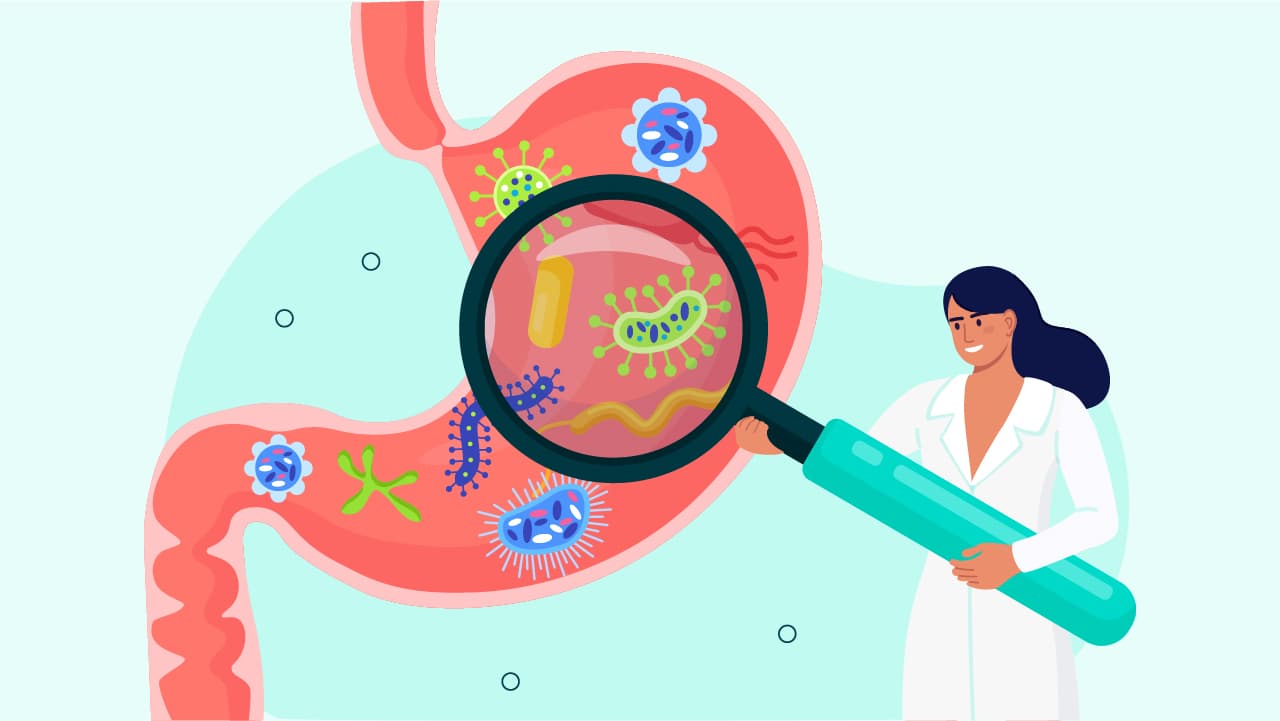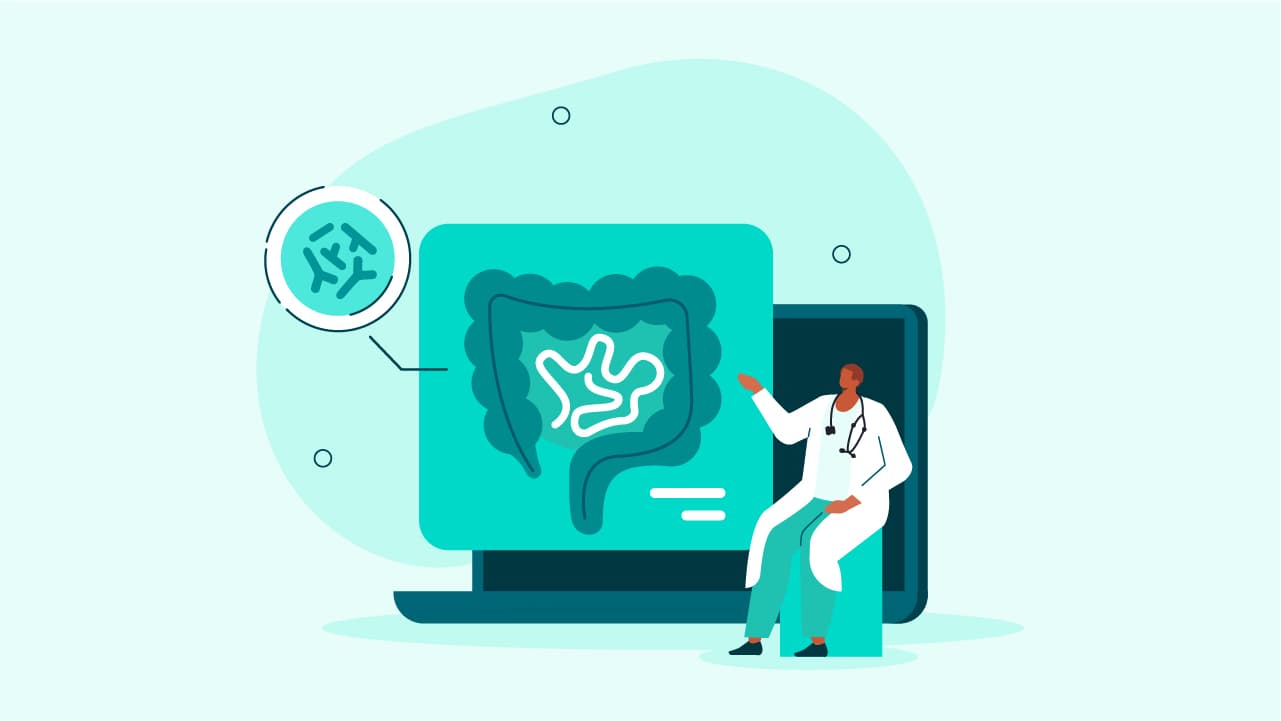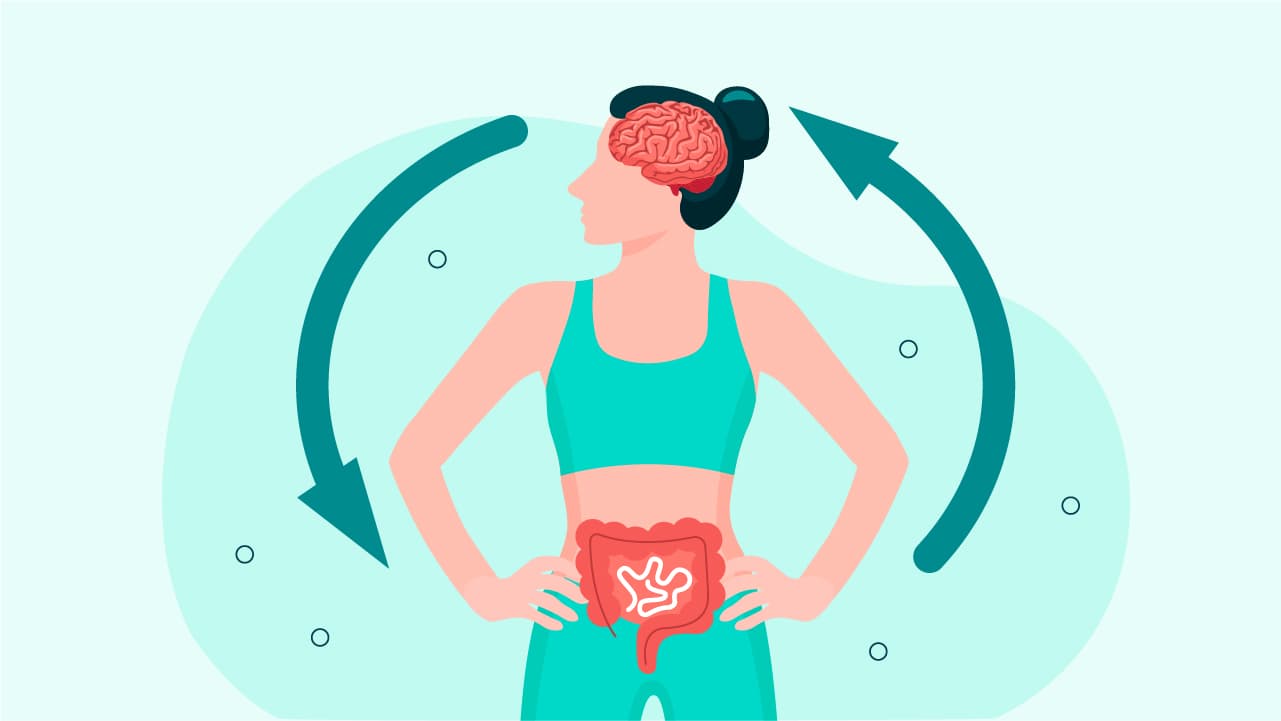There's no judgment here, this is always a safe place. But we were just wondering...
How are those New Year's resolutions coming along?
Still going strong? Fantastic. Sorry to have disturbed you.
Fallen off the wagon...? Don't worry. You're not alone.
In fact, the second Friday in January is known as Quitter's Day.
Apparently on average, only 8% of us stick with our goals for an entire month. 23% of us quit by the end of the first week. And according to a 2024 survey by Forbes Health, 62% of us never even wanted to make a new year's resolution in the first place. (1)
Peer pressure strikes again.
Nevertheless, in 2023, more than 1 in 3 of us set ourselves a goal. (2)
And you can probably guess what this year's top five looks like:
- Improve physical health.
- Improve finances.
- Improve mental health.
- Lose weight.
- Improve diet.
No real shocks there.
But this might shock you... We're saying: enough is enough.
Yes. we're taking a stand.
This is your permission to ditch the faddy diets. To refuse the exhausting 6am workouts. To no longer buy into this New Year, New Me, 'better' version of yourself.
Because the fact is, four out of the above five can all be achieved by making one little lifestyle tweak. And it doesn't involve early starts, deprivation, or Lycra.
They all have one thing in common. And that 'thing' is your gut bacteria.
Key Takeaways
- Many health trends come and go, but a resilient gut microbiome is a long-term foundation for better digestion, immunity, metabolism, and mood.
- Ultra processed foods, stress, poor sleep, and overuse of antibiotics can all chip away at microbial diversity and gut barrier integrity.
- Feeding your gut with fiber, polyphenols, and targeted prebiotics often matters more than chasing the latest detox or crash diet.
- High quality prebiotic formulas can help beneficial bacteria flourish while supporting everyday comfort and regularity.

What are gut bacteria?

You don't often see gut health in the New Year's resolution top ten. It's perhaps not very sexy. But, more and more research suggests that the key to reaching any of these health goals could lie in how healthy our gut is.
Gut bacteria, also known as gut microbiota, are the trillions of microorganisms that live in our digestive tract. Your gut microbiome is a vast ecosystem of bacteria, fungi, viruses, and other microbes.
Some are friendly, some are not so friendly.
So finding the right balance is key.
But it's not a one-size-fits-all situation. This microbial community is as unique to you as your fingerprint. Diet, genetics, environment, and age, all play a role in making it bespoke. (3)
Why are gut bacteria so important?

This diverse community plays a crucial role in so many of our body's functions. And all those functions, when working optimally, can align with our health goals.
Metabolic function
One of the primary functions of the gut microbiome is to assist in the digestion of food and the absorption of essential nutrients. (4) Good gut bacteria help break down complex carbohydrates, proteins, and fiber, making them more accessible for your body to use. For those aiming to lose a little weight, a healthy gut can help control your appetite, blood sugar regulation and how your body stores fat.
Related Post: Do Probiotics Help You Lose Weight? - A Complete Guide
Appetite regulation
"I'm so hungry, I think I must've stretched my stomach."
We haven't. We've just eaten the wrong things.
After December's indulgence, getting back on track can leave us feeling so hungry, we're convinced our stomach will start eating itself if we don't feed it.
And while overeating can temporarily stretch your stomach, it's more likely the reason we feel hungry is down to an imbalance in our gut microbiome.
Ghrelin and leptin are two hormones that play key roles in appetite regulation. Ghrelin, the hunger hormone, is produced mainly in the stomach. This signals the brain to increase appetite when our stomach is empty. Which prompts us to eat.
Leptin, known as the 'satiety hormone', is produced by fat cells. It sends signals to the brain to suppress appetite and tells us we're full. High levels of leptin tell our brain that we have enough fat stored, and we do not need to eat any more.
Overeating, especially foods that are high in sugar and fat, can temporarily alter the balance of these hunger-regulating hormones. Sending them a little 'off'. And this imbalance caused by not eating the right things, can then lead to overeating or not feeling full enough.
Immune function
70% of our entire immune system resides in our gut. (5)
It makes sense.
It's a strategic placement, considering that the food we eat introduces external bacteria to our body. Our gut bacteria know what's good and bad for us. What should be allowed, and what needs to be dealt with.
It's like the security detail of our bodies.
Our gut bacteria offer on-the-job training to our immune cells. Which in turn, give the lymphocytes intel on recognizing potential enemies and coordinating a response. This interaction coaches our immune system to protect against harmful pathogens, whilst still maintaining harmony with the beneficial microbes. (6)
The goal of improving physical health can be broadly interpreted, so strengthening your gut is a great place to start.
Mood

If prioritizing mental health was high on your list this year, remember that feeding your gut is like feeding your soul.
The gut is sometimes referred to as the "second brain" due to its intricate network of nerves and neurons, known as the enteric nervous system. This complex system communicates directly with the brain through various pathways, including the vagus nerve, hormonal signals, and immune system interactions. And these two, they love to gossip...
"She's back on the Reese's Pieces," says your gut. "But that will completely overstimulate my reward pathways," says your brain.
What we eat has a direct impact on how we feel.
When we feed the good bacteria in our gut, it promotes the production of neurotransmitters like serotonin and dopamine. These 'feel-good' chemicals play a crucial role in regulating our mood and promoting feelings of happiness and well-being. (7)
Those tiny microbes are kind of a big deal.
And the more beneficial bacteria we have to balance our gut, the better we feel.
With this in mind, there's a few ways we can keep this 'good' bacteria fed, watered, and at optimal levels.
5 tips for a healthy gut
Add probiotic foods to your diet.

In recent years, probiotics have made their way into the mainstream. These live microorganisms, typically bacteria or yeasts, may offer health benefits for us when ingested.
These guys are the backup troops for the good bacteria that's already present in your gut.
Whilst there's still a lot of ongoing research into the potential benefits of probiotic supplements, recent studies indicate that getting more fermented foods such as live yogurt, kefir, sauerkraut, and kimchi into our diet can contribute to a healthy gut microbiome. (8)
Incorporate prebiotic foods into your diet.

Whilst probiotics are the live microorganisms that can boost the numbers of good guys in your gut. All of them will need feeding. And this is where prebiotics come in.
These are the unsung heroes when it comes to gut health.
Prebiotics are a non-digestible fiber that act as nourishment for the good bacteria in your gut. Increasing your fiber intake in general, can lead to a more diverse and resilient gut microbiome. (9) But not all fiber is considered a prebiotic as not all fiber is fermented.
When these fibers are fermented by the bacteria in our colon, they produce short-chain fatty acids (SCFAs) like butyrate, propionate, and acetate, which are all crucial for gut health. (10)
It's like a fertilizer for our good bacteria.
Inulin is a particularly good type of prebiotic fiber. It can be found in many plants such as Jerusalem artichoke, chicory root, garlic, leeks, and oats.
Choose whole foods over processed.

We know we should be avoiding processed food, but some of them are more difficult to spot. Especially those that exist on the edges of dietary trends. Muesli, energy bars, vitamin water, and plant-based meats are all perceived as healthy. But these are sometimes ultra-processed, with added sweeteners, preservatives, and emulsifiers.
Artificial sweeteners: Sweet things taste good, but added sugar is bad. The solution: a sweetener with zero calories. But even though our taste buds may have been tricked, our brains and bodies know it's not the real deal. And they respond to these artificial sweeteners differently.
While sugar activates the brain's reward pathways fully, providing both sweetness and energy, artificial sweeteners only partially trigger these pathways due to the absence of calories. They're sweet, but they don't have the calories our body was expecting to get for energy.
And this tricks our brains.
Something is missing. It's not fully activated in the same way it is for sugar. Which can lead us to increased cravings and potential overeating later.
Additionally, artificial sweeteners impact the gut microbiota differently than sugar. Studies in mice indicate that prolonged exposure to artificial sweeteners can impair the ability to process real sugars, potentially disrupting nutrient absorption. (11) This means that even if we eat nutrient-rich foods, our bodies might not extract the necessary vitamins and minerals efficiently, which could lead to nutritional gaps.
Preservatives: These are added to foods to prolong their shelf life. They prevent spoilage by inhibiting the growth of bacteria, fungi, and yeast.
However, certain preservatives, such as sodium benzoate and potassium sorbate, can negatively impact gut bacteria. These substances may inhibit the growth of certain beneficial gut bacteria, potentially leading to an imbalance in the gut microbiome.
Emulsifiers: Commonly found in many processed foods such as plant milks and protein shakes. They stabilize and improve the texture of certain foods. But studies in mice have shown they may also weaken the protective layer of mucus that lines the gut. (12)
Damage to this lining can lead to increased gut permeability, often referred to as "leaky gut." This condition allows bacteria and toxins to pass from the gut into the bloodstream, potentially triggering inflammation, and immune responses.
Get moving.

At this time of year, we're especially motivated to get a bit more active. But in addition to the benefits on your body. Aerobic exercise can really benefit your microbiome too.
Studies have demonstrated that aerobic exercise like running or cycling for 30-60 minutes can increase butyrate-producing bacteria, such as faecalibacterium, in the gut.
In a study involving 32 participants with varied BMIs, participants performed moderate-to-vigorous aerobic exercises three times a week. Despite maintaining consistent diets, stool and blood samples showed that exercise led to a rise in 'butyrate producers' regardless of BMI. (13)
Lean participants also exhibited an increase in short-chain fatty acids, including butyrate, in their stools.
Butyrate serves as a key energy source for the cells lining the colon. It helps maintain intestinal barrier integrity and possesses anti-inflammatory properties. Additionally, it plays a role in regulating the immune system and gene expression, contributing to overall gut health, and potentially preventing certain metabolic and inflammatory conditions.
Avoid fad diets and food trends.

It was fun while it lasted, but December, you're a bad influence.
What we need to do now is repair some of that damage. And actually, by January 1st, most of us are done with all that excess, and are happy to embrace a healthy new regime.
So what's the harm?
Be careful here. It feels good to punish ourselves right now. That urge to repair and reset makes us susceptible to faddy diet trends and detoxes. The idea that you can flush impurities from your system, and cleanse your organs back to newborn status is, at best, not true, and at worst, potentially damaging.
Detox tea, juice cleanse, extreme calorie reduction. None of these will actually detox you. That's down to the healthy function of your liver and kidneys. What they will do, is starve your body of the energy it needs, to do the job you're asking it to do.
If we deprive the body of what it needs. It can contribute to oxidative stress. Oxidative stress occurs when there's an imbalance between the production of free radicals (unstable atoms that can damage cells) and the body's ability to counteract their harmful effects with antioxidants.
This oxidative stress can damage cells, proteins, and DNA, which can contribute to aging, and a range of health problems.
Perhaps it's better to approach your January detox as a habit cleanse rather than a gut cleanse.
Final thoughts
There's no doubt about it. December is a tough act to follow. But January has a job to do.
No other month sees quite such a unified effort towards health. January is the month when we're all in this together. We all want to succeed. And we will cheer each other on like no other.
Behavioral scientists say it's due to the "Fresh Start Effect". (14) That we're more likely to engage in goal directed behaviors and increased motivation and the beginning of a new time period.
But the key to reaping the rewards is making those behaviors sustainable.
When we're choosing our New Year goals, maybe look at getting into easy repeatable habits that make meaningful difference when continued over time. Once you can do that, you'll be laughing in the face of Quitter's Day.
If gut health is something that's captured your interest, adding a probiotic or a prebiotic supplement to your daily routine is an easy win for your gut health.

At Performance Lab®, we're all about science backed nutrition, so we're holding off on the probiotic for the time being. We feel there's a lot more great research still to be done in this area. So until that day comes, our premium Prebiotic formula, made using research-backed Inulin-FOS from chicory root, promotes more organic, comfortable and reliable digestive support.
References
- https://www.forbes.com/health/mind/new-year-resolutions-survey-2024/
- https://today.yougov.com/society/articles/44868-americans-new-years-resolutions-2023-poll
- https://pubmed.ncbi.nlm.nih.gov/22699609/
- https://www.ncbi.nlm.nih.gov/pmc/articles/PMC3601187/
- https://www.ncbi.nlm.nih.gov/pmc/articles/PMC8001875/
- https://pubmed.ncbi.nlm.nih.gov/33367688/
- https://www.ncbi.nlm.nih.gov/pmc/articles/PMC6469458
- https://www.ncbi.nlm.nih.gov/pmc/articles/PMC9003261/
- https://www.ncbi.nlm.nih.gov/pmc/articles/PMC8153313/
- https://www.frontiersin.org/articles/10.3389/fimmu.2019.00277/full
- https://pubmed.ncbi.nlm.nih.gov/25231862/
- https://www.ncbi.nlm.nih.gov/pmc/articles/PMC4910713/
- https://journals.lww.com/acsm-msse/Fulltext/2018/04000/Exercise_Alters_Gut_Microbiota_Composition
- https://www.thebehavioralscientist.com/glossary/fresh-start-effect
















